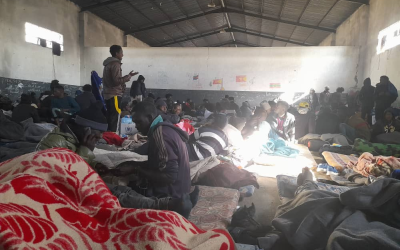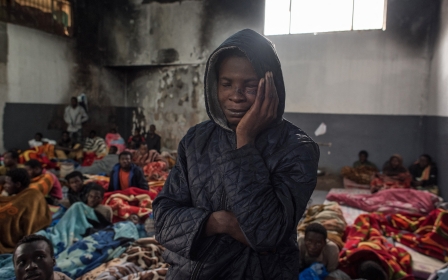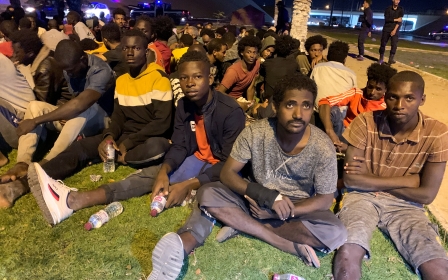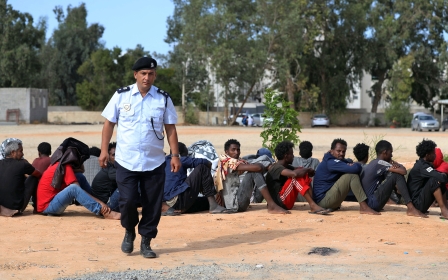Libya: Wounded refugees 'separated from children' in Tripoli crackdown
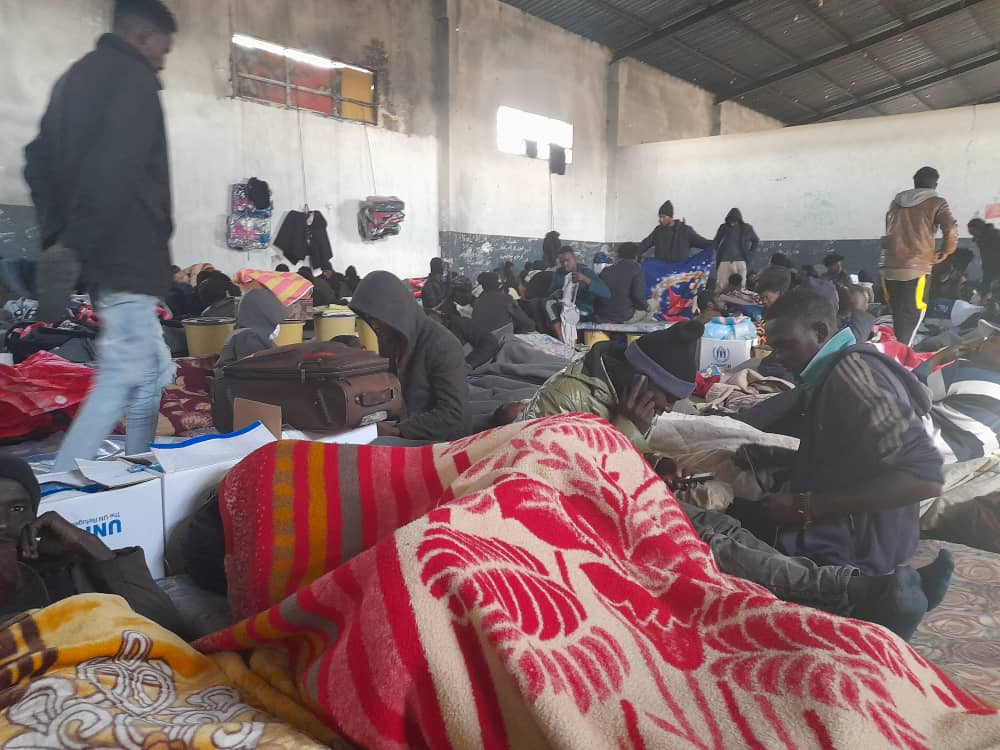
People had "stab wounds, beating marks and [were] separated from children" after more than 600 people were attacked and detained by Libyan authorities in Tripoli on Monday morning, says Gabriele Ganci, head of MSF mission in Libya.
The detainees, who are almost all from sub-Saharan Africa, were taken to Ain Zara detention centre in the Libyan capital at 2am local time on Monday, after a stretch of the makeshift tents they were sleeping in were burnt down.
Eyewitnesses told Middle East Eye on Monday that a number of refugees were killed after government and police forces attacked the community, burning down tents and trying to move people to detention centres by force.
“Not only does this once again prove how migrants are subject to random and arbitrary detention, but these people are additionally detained for speaking up for basic protection, safety and treatment in-line with humanitarian law," said Ellen van der Velden, MSF Operations manager.
Video footage captured by the Refugees in Libya Twitter page appeared to confirm the eyewitness accounts, while a medical team from the International Rescue Committee (IRC) said they had treated one person suffering from a gunshot wound.
Thousands of people have been sleeping rough in front of the centre, which was run by the United Nations' refugee agency, the UNHCR, and local partners until it was closed in December, with the agency citing security concerns. The tent community sprang up after refugees were left homeless and lost all their belongings as a result of Libyan security operations.
Refugees from sub-Saharan Africa told MEE the situation they face in Libya is becoming ever more dire, with the attack on their makeshift tents the latest and most dramatic expression of that reality. One refugee said they felt as though they had been abandoned by the international community and the UNHCR.
On 23 December, Mohamed al-Khoja, a militia commander who previously ran Tripoli's Tariq al-Sikka prison, where reports of rape, beatings and extortion were commonplace, was confirmed as the head of the Directorate for Combating Illegal Migration (DCIM).
The DCIM manages the detention centres that hold many of Libya's refugees.
Middle East Eye delivers independent and unrivalled coverage and analysis of the Middle East, North Africa and beyond. To learn more about republishing this content and the associated fees, please fill out this form. More about MEE can be found here.


